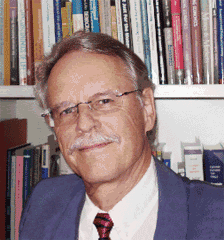More tales of a productive man
 Subscribe to Decision Science News by Email (one email per week, easy unsubscribe)
Subscribe to Decision Science News by Email (one email per week, easy unsubscribe)
INTERVIEW WITH BRUNO FREY, PART II
Here we continue last week’s Bruno Frey interview that Lionel Page and Dan Goldstein conducted before Frey’s Economics of Behaviour and Decision Making presentation at London Business School.
Lionel Page – I was thinking of what you said before about the negative effect of the Nobel prize. What do you think is the effect of tenure? I was wondering if there is maybe a negative of tenure. Is there evidence of this kind of thing?
Bruno Frey – I rather like this long period in which one learns the trade of one’s profession. One is socialized to the profession and then one gets tenure. In principle, I would argue that this should be the end of evaluations. Unfortunately, this is no longer true. I am fighting against evaluations. I think when people are well trained, afterwards one should leave them and tell them “ok, go ahead and work”. You would have a larger variance (you would have some that wouldn’t work any more, I perfectly admit that) but the others are then free to do what they like and can do long-run and different things. If you look at my research topics, where would I get approval? What group of economists would approve when I say I want to work on World Heritage? They say, he is crazy. When I say I want to work on awards or on orders, they would say “oh that’s crazy”. On happiness, “crazy, happiness doesn’t exist” etc., etc. I say one must give things a little bit of time to develop.
Dan Goldstein – Is it fair to say your productivity has much to do with the fact that you’re investigating pretty much just whatever it is you want to investigate?
BF – I am still one of those professors who is totally free to do what he wants. I do not have to get funds to do research. I am paid as a professor. I have some co-workers with whom I do the research, but I can decide on my own. Of course with my young collaborators, if they were are not interested, it wouldn’t work at all, but I don’t have to attract funds from outside and try to explain myself. How can I explain, in a new field, what will come out?
DG – Of course, where incentives are concerned, you have the freedom to do nothing if you want …
BF – Yes, but I believe in intrinsic motivation, that essentially good scientists, good scholars are intrinsically motivated. They will work because they like to work.
I couldn’t get interested in a lot of subjects that economists do, especially when I know it’s more or less dry and irrelevant. You know, I just wouldn’t like to work on general equilibrium analysis. And I am probably very bad at it. So, I always try to find new topics. Afterwards, the Americans come with their brilliant educations and the English with their brilliant educations, and of course are better. Or let’s say they are certainly better trained to do the things. So, I have to try to be a little bit original.


